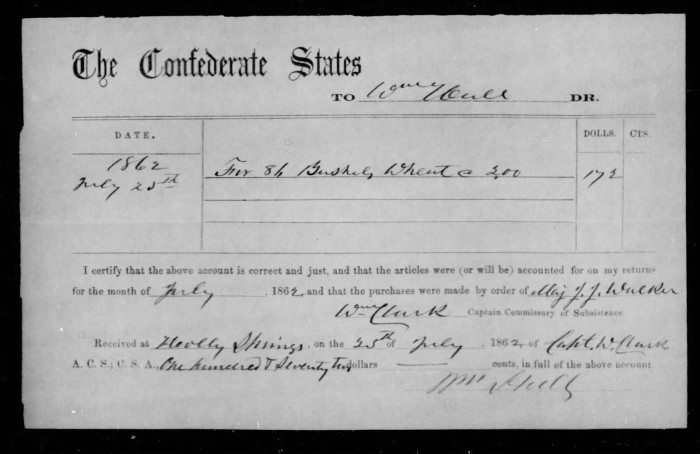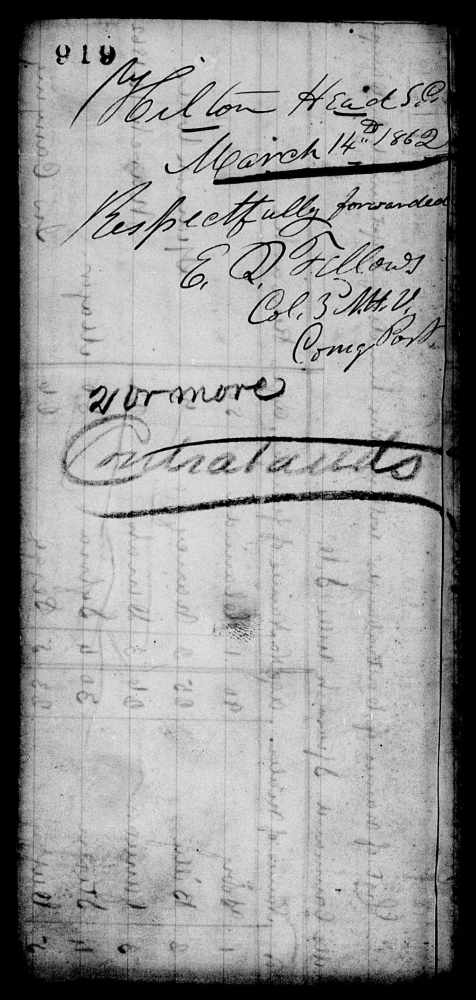Sharp Bargainers
Several years ago, I started composing an essay titled “They Were Sharp Bargainers: John Eaton, Jr.’s 63rd United States Colored Troops.” I have not completed the article about the Civil War Superintendent of Freedmen and his black guard regiment because I have not felt satisfied that I had enough evidence … Continue Reading Sharp Bargainers
Jamelle Bouie Has Asked the Right Questions
What will be the relationship between Digital Humanities and research on slavery going forward?
Civil War Era Ancestors’ Service
African American Experience in Ohio, Digital Collection
While many states have developed digital collections related to African American experience, the Ohio History Collection curated by the Ohio Historical Society in cooperation with the Library of Congress offers a variety of documents that inform the study of the transition from a slave to a free society. “Slavery is … Continue Reading African American Experience in Ohio, Digital Collection
Emancipation on Memphis’ President’s Island
Deconstructing Rhetorics of Slavery I
I…think writers in general and maybe historians in particular must ask themselves what the implications are of the narratives they/we write. Do they, in their rhetorics, affirm already under-examined perspectives on peoples? Are those rhetorics proof of what historian Ira Berlin wrote…? In other words, do the rhetorics, the languages, of history transfix?
Three Negroes Brought into Fort Pickering by A Scouting Party
Following is a transcription of an actual case of three fugitive slaves, all men, brought into Memphis’ Fort Pickering January 9, 1863 for allegedly stealing the property of their former owners. They were brought in my Col. Howe’s (Union) Cavalry. Confessions were obtained from them. Their case was forwarded by … Continue Reading Three Negroes Brought into Fort Pickering by A Scouting Party
Interns Speak!
https://www.podbean.com/media/share/pb-bf62d-f0c190 Meet Rust College interns Quento Annan and Irene Njengo. Here, they discuss what they learned their first year at the college, participating in the wRIGHTing Reconstruction project, funded by the Council of Independent Colleges.
Humanities Research at Rust College
https://www.podbean.com/media/share/pb-6mrqe-e6dafb In this introductory episode, Professor Alisea Williams McLeod, introduces the wRIGHTing Reconstruction project, a humanities initiative funded by the Council of Independent Colleges.
The Nature of the Work of Transcribing Slave Names
The title of this post is ironic as I’m not sure there is anything natural about one person “owning” another. However, as I transcribe contraband camp registers, noting next to each freedperson the name of their “former owner,” I am lending regularity to something that would otherwise feel very strange. … Continue Reading The Nature of the Work of Transcribing Slave Names
Hennig Cohen on S.C. Slave Names*
Hennig Cohen, formerly of the University of Pennsylvania, referred to a “dual naming system among slaves in the eighteenth century” (103). Enslaved persons might have an English name but also have a nickname (“country name”) that might be African or African-influenced. Hennig’s study was based on names found in the … Continue Reading Hennig Cohen on S.C. Slave Names*
Hardtimes, cont.
SC Slave Owner Names–Beaufort and Hilton Head
Testing Inscoe’s Thesis with Contraband Camp Registers
Revisiting Carolina Slave Names
I tend to think that a month name might not have indicated the actual month of birth. Rather, the month could stand for something like “first,” winter, cold, Janus, etc. I think there are all sorts of possibilities and what was most important was what the word symbolized.





